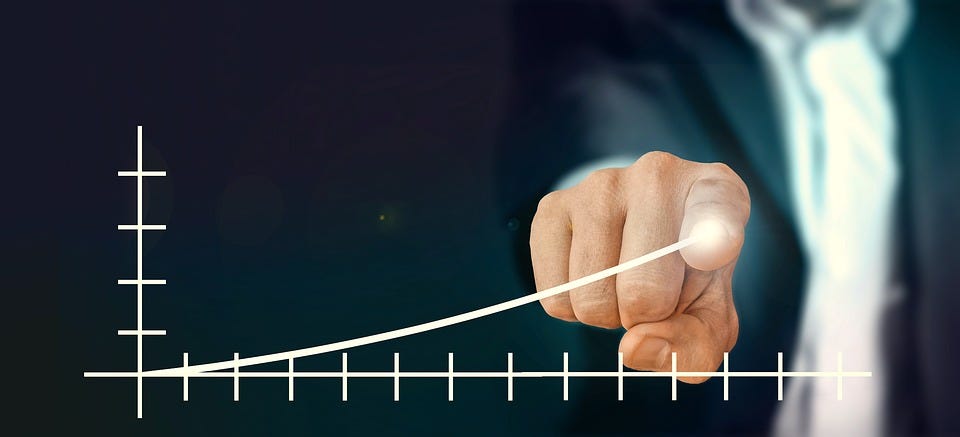Your Productivity Tools Are Sabotaging You
Trying to quantify and optimize your productivity might rob you of creativity
Productivity 2.0 👔
In a previous newsletter, I covered the modern myth of ever-increasing productivity, or how we have come to see working ourselves to death as a badge of misplaced honor.
Thankfully, we now have a suite of tools that can help us get there faster. (Ah, the sweet nectar of sarcasm. Gets me through the day.) We are flooded by software tools and apps to track everything we do, break it up into smaller chunks, and wave a virtual flag every time we reach a preprogrammed milestone. Such joy. (There’s that sarcasm again.)
It gets better.
Many of these tools are now embedded in software platforms used by both employers and freelancers. They’ve literally been baked into our working life.
Do these tools actually make us more productive? (Leaving aside for now whether that’s something we should want anyway. I’ll get to that below.) Probably not. Even over 30 years ago, a study found that:
Organizations introduce software tools, methods, and Computer-Aided Systems Engineering (CASE) environments to improve productivity…
Without reviewing their management practices, organizations unknowingly lose the very productivity benefits they strove to achieve.
“30 years ago? Surely we’re doing better now?”
You’d think so. But a 2018 survey by Microsoft found that:
…the introduction of new technology on its own, does not guarantee more effective work.
And a Hubspot research blog makes a similar case. Over 80% of sales and marketing professionals (jobs in which ‘efficiency’ is - wrongfully? - thought to be a key asset) lose several hours per week managing the tools that are supposed to make them work more productively. Sounds counterproductive.
Rethinking productivity 🤸
I’m sure some of you use productivity tools, and I’m sure some of you have found good ones. If we go back briefly to the Microsoft survey, those technologies can work if they align with the overall ‘company culture’. While the term wraps cold fingers around my little heart (company culture is far too often misused to erase individuality, but that’s a rant for another day), we can extend this beyond working culture. Whether you use productivity tools in your professional or personal life, they will only work if they fit within a comprehensive framework of who you are and what your personal vision on life is.
And, because I had to test Substack’s new poll functionality:
For a real-life example: I don’t have a lot of downtime (need to work on that, I know), but I obsessively guard my free time. Because it’s in that free time that I can be productive in ways that I value personally, whether it’s physical activity, writing, or researching whatever crazy idea is bouncing through my brain. I enjoy being productive, not with rules and tools, but rather according to my own goals, schedule, and enjoyment. Do I use productivity tools to do those things? A bit, perhaps. Substack helps me write and send out this newsletter without me having to set it all up from scratch. I keep track of my short story submissions. I use a few academic search tools and a reference manager. And so on.
“Wait a minute, that’s not being productive. That’s doing stuff you like doing. Doesn’t count.”
Excuse me? When did productivity become a stressful, mindnumbing, performance-driven, KPI-assessed deliverable?
That’s the problem.
I’m going to quote a chunk from a 2011 research article’s abstract because it remains especially poignant even over a decade later:
…individuals across a demographic range have internalized a cultural emphasis of busyness as a moral value to construct positive identities as busy individuals. At the same time, they struggle with a sense of conflict around busyness, reflected in real-life experiences of clashing priorities, fantasies of downtime, and struggles with anxiety, guilt, and loss of control.
We’ve come to equate being productive with being busy and being busy with good. Ideally, being busy in a work-related context. We pride ourselves on our stuffed calendars, and that robs us of many things. It’s well-known that a wandering mind can be very creative and insightful. Do we even give ourselves time to daydream? Or is that something we need to block in our calendar? Something to track with whatever privacy-ignoring app we use? By focusing on the narrow, performance-based notion of productivity we undermine some of the traits (creativity, doodling, having fun) that allow us to produce meaningful things in the first place.
Stop trying to be ultra-productive. Start being human.





